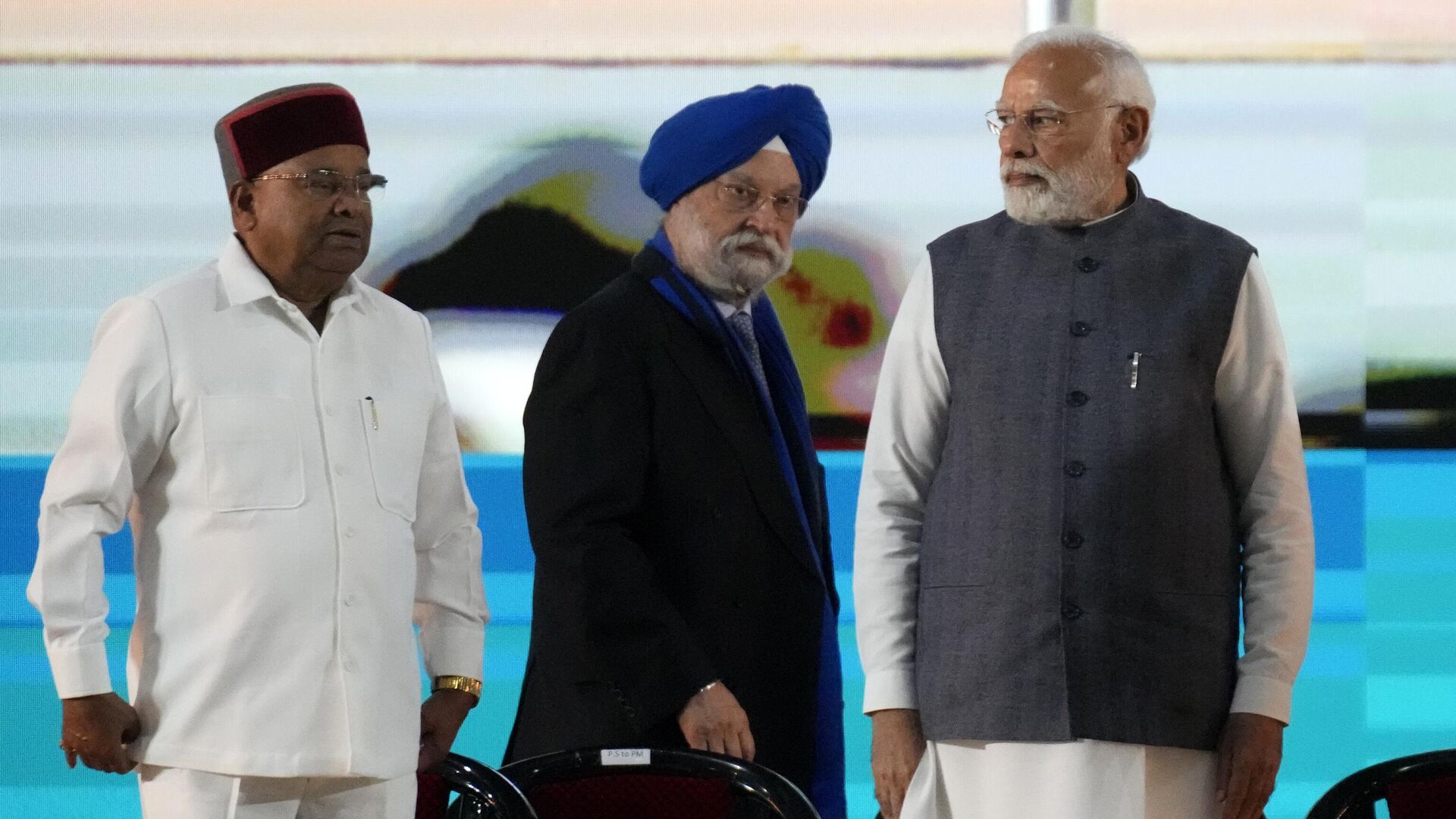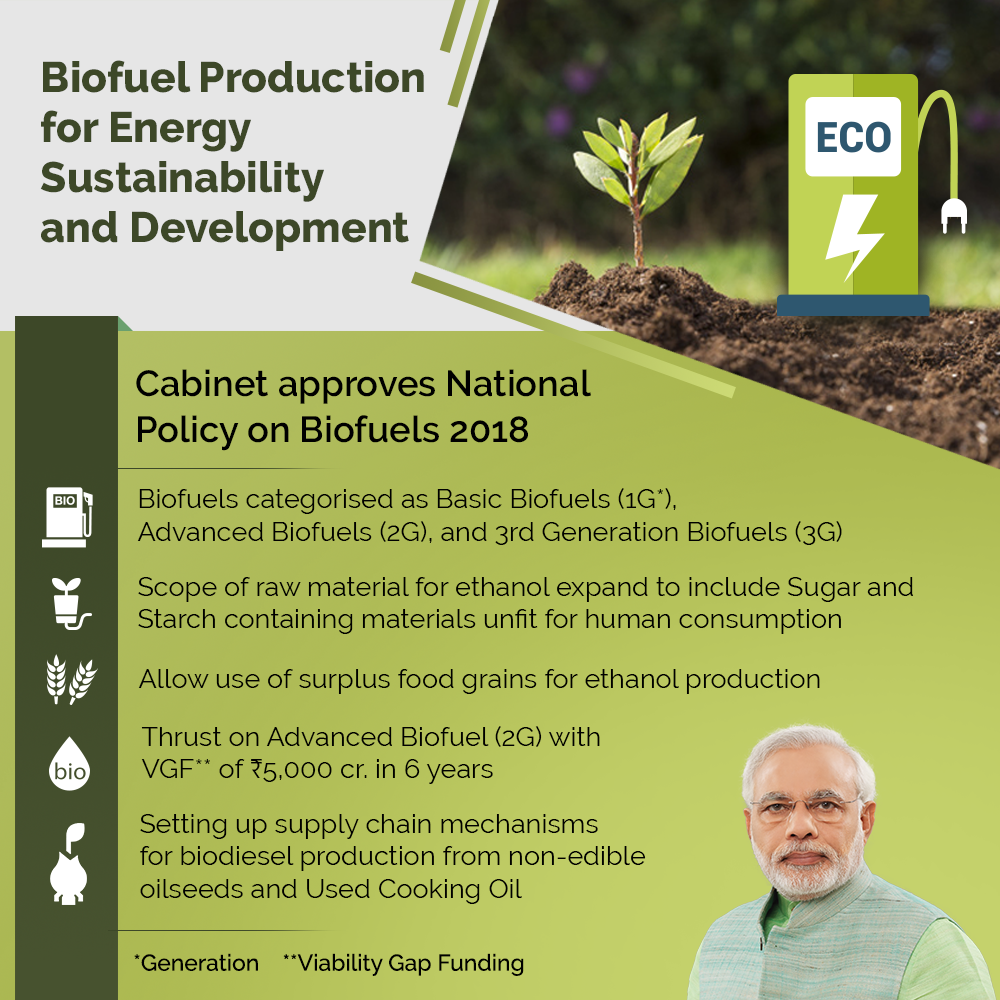Government of India spearheaded by Narendra Modi led BJP party has decided to promote bio-fuel in the country. The government on Saturday announced the phase-wise mandatory blending of compressed bio-gas (CBG) in compressed natural gas (CNG) and piped natural gas (PNG)

“In a major step towards enhancing use and adoption of CBG, the National Biofuels Coordination Committee (NBCC), chaired by the Petroleum Minister, announced on Saturday the introduction of phase-wise mandatory blending of CBG in CNG (transport) & PNG (domestic) segments of city gas distribution (CGD) sector,” said the petroleum ministry in a statement.
According to the government, the objectives of the CBO (CBG blending obligation) are to stimulate demand for CBG in CGD sector, import substitution for liquefied natural gas (LNG), saving in forex, promoting circular economy and to assist in achieving the target of net zero emission etc.
Petroleum minister Hardeep Singh Puri while talking about the initiative said the CBG blending obligation will promote production and consumption of CBG in the country. “It will encourage investment of around Rs 37,500 crore and facilitate establishment of 750 CBG projects by 2028-29,” said Puri.
Discussions also took place for promoting production of ethanol from maize with all stakeholders especially with the Department of Agriculture and Department Food and Public distribution (DFPD) to make it a prominent feedstock in coming years, the minister said.
The government approved 1% sustainable aviation fuel (SAF) indicative blending target in ATF by 2027 for domestic flights and 2% SAF blending target in 2028 for international flights.
The government has already achieved 10% ethanol blending five months before its November 2022 target. Now it has advanced its 20% ethanol blending in petrol target to 2025 from 2030. India, world’s largest importers of oil and gas, wants to cut down in its fuel import bill.
The Government of India has announced a CBG mission; Has there been any prior global initiatives for the same?
Countries such as Germany, Italy, UK, France and Switzerland are promoting bio-gas usage promoted by supporting legal frameworks, education schemes and the availability of technology.

Biogas produced in European countries is mostly fed into local natural gas grids and used for power generation. Grid injection is most common in European states followed by vehicles fuelled with biogas (either pure or in blend with natural gas) and biogas is also used for heating purposes either directly or blended to natural gas.
The number of bio-gas plants in Germany has doubled to nearly 9,000 plants from 4,136 plants in 2010. The total bio-gas production capacity of the plants is 8.98 Billion Cubic Meter (BCM) equivalent to 6.6 Million Metric Ton (MMT).
They are primarily operated by farmer co-operatives, and utilise crops like maize or turnips as feedstock in their plants.
More policies about Government of India’s pledge towards a greener future
Pradhan Mantri JI-VAN Yojana :
The Government had notified the Pradhan Mantri JI-VAN Yojana for providing financial support to integrated bio-ethanol projects. The total financial outlay for the scheme is INR 1969.50 crore for the period 2018-19 to 2023-24.
Under the PM JI-VAN Yojana, the maximum financial assistance of INR 150 crore per project for commercial projects and INR 15 crore per project for demonstration projects has been prescribed for improving commercial viability as well as promoting R&D for development and adoption of technologies in the field of production of 2G ethanol.
Hydrocarbon Exploration & Licensing Policy (HELP) :
The new Hydrocarbon Exploration & Licensing Policy (HELP) has replaced the previous policy regime for exploration and production of oil and gas, known as New Exploration Licensing Policy (NELP). HELP provides a uniform licensing system to explore and produce all hydrocarbons such as oil, gas, coal bed methane, shale oil/gas, etc. under a single licensing framework.
National Policy on Biofuels 2018
With a target of 20% blending of ethanol in petrol by 2030, the National Policy on Biofuels 2018 has been notified by the Government of India. The policy is expected to boost the Biofuel programme of the country and has also widened the scope of raw material for ethanol procurement.
According to the National Policy on Biofuel 2018 envisages a target of 20% blending of ethanol in Petrol by 2030.
Following benefits are expected out of the new policy:
- Reduce Import Dependency
- Cleaner Environment
- Health benefits
- Municipal Solid Waste Management
- Infrastructural Investment in Rural Areas
- Employment Generation
- Additional Income to Farmers
Amendments are done to the National Policy on Biofuels due to advancements in the field of Biofuels. These include :
- To allow more feedstocks for production of biofuels,
- To advance the ethanol blending target of 20% blending of ethanol in petrol to ESY 2025-26 from 2030,
- To promote the production of biofuels in the country, under the Make in India program, by units located in Special Economic Zones (SEZ)/ Export Oriented Units (EoUs),
- To add new members to the NBCC.
- To grant permission for export of biofuels in specific cases, and
- To delete/amend certain phrases in the Policy in line with decisions taken during the meetings of National Biofuel Coordination Committee.
SATAT (Sustainable Alternative Towards Affordable Transportation) :
The target is to have 5000 compressed biogas plants of 15 MMT per year with an investment potential of $20 Billion.
The SATAT scheme aims to set up Compressed Bio-Gas production plants and make CBG available in the market for use as a green fuel. ‘SATAT’, launched on 1.10.2018, envisages targeting production of 15 MMT of CBG from 5000 plants by 2023.













